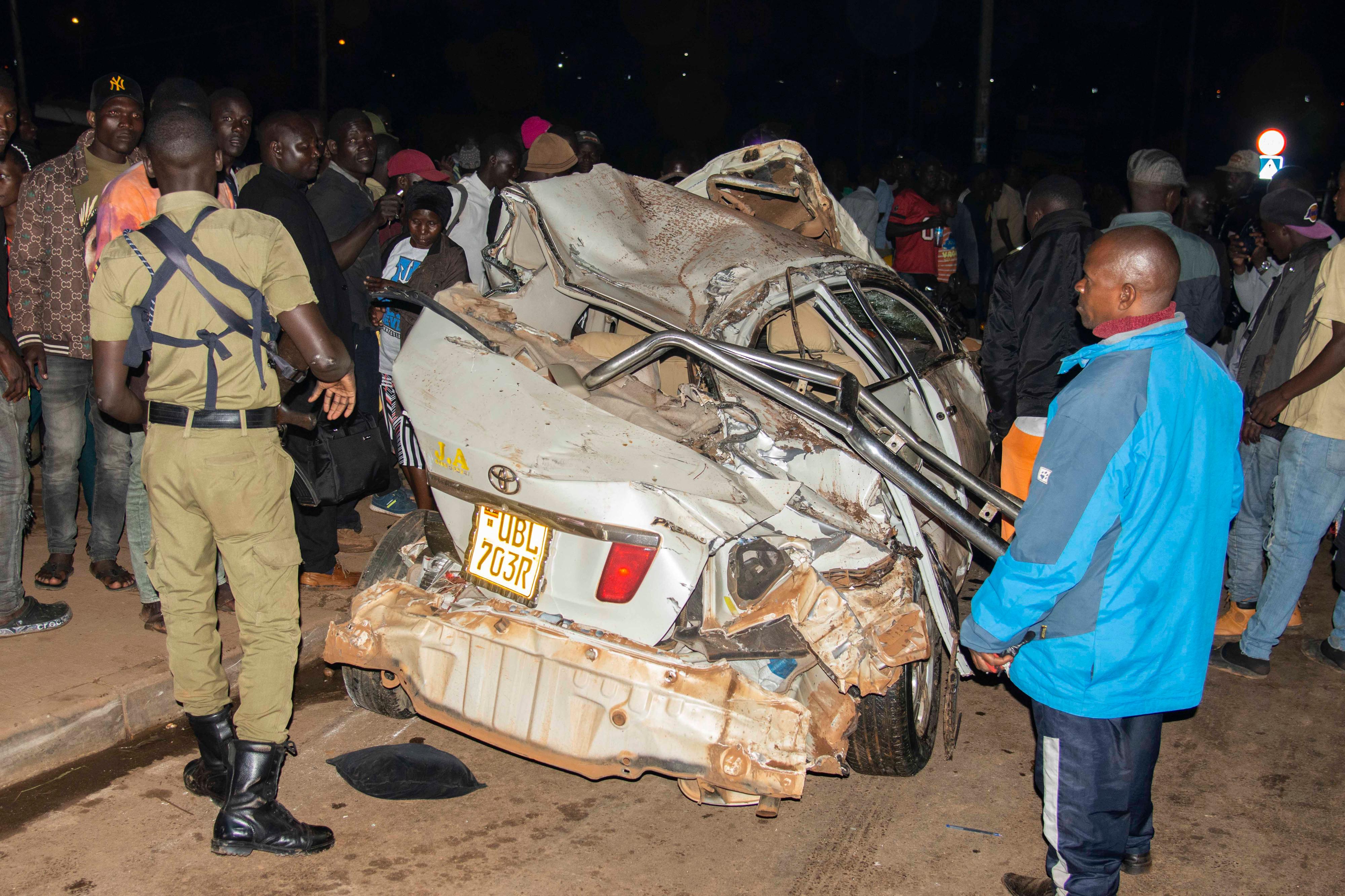Prime
Road Accidents: A national Crisis and a call for action

Peter Cromwell Okello
What you need to know:
Improving road infrastructure and design to ensure safety for all road users, especially pedestrians, cyclists, and motorcyclists, who are more vulnerable to crashes.
Road accidents are one of the leading causes of death and disability in Uganda, claiming over 3,600 lives in 2021 alone. According to the Minister of Works and Transport, Gen Edward Katumba Wamala, this is a recorded increase from the 2019 and 2020 statistics, which were at 3,194 and 3,407 lives, respectively. Most victims of these road accidents are boda boda cyclists and passengers, as well as jaywalking pedestrians who are under the influence of substances. These are even worse during the holidays/festive season when serious road accidents literally become a daily occurrence.
The situation is so dire that many Ugandans have resorted to praying to God for their safety instead of holding the authorities accountable for the state of our roads and the indiscipline in using them. This is a sign of hopelessness and resignation that should not be tolerated in a country that aspires to achieve middle-income status by 2025. Road accidents cause human suffering and loss and hurt the economy. The government spends reasonable amounts of money to treat accident victims, yet the funds could be used to promote socio-economic development in communities.
But what are the causes of road accidents in Uganda, and what can be done to prevent them? Researchers from Makerere University and the Ministry of Health performed a rapid cross-sectional study involving both quantitative and qualitative approaches in 2023. The study found that the causes of road accidents are human error, weather, and the poor state of some roads. Human error includes factors such as distracted driving, speeding, reckless driving, drink driving, improper turns, road rage, unsafe lane changes, driving when fatigued, dangerous curves, tyre bursts and animal crossings. Weather includes factors such as rain, fog, dust, and darkness that affect visibility and road conditions. The poor state of some roads includes factors such as potholes, cracks, bumps, lack of road signs, markings, signals, lighting, and barriers.
These causes are not unique to Uganda but are more prevalent and less addressed than in other countries. For instance, a comparison with the four countries with the most closely comparable national travel surveys and levels of affluence, Denmark, Germany, Netherlands, and the United Kingdom, shows that Uganda has a much higher road fatality rate per 100,000 population and per 10,000 vehicles. These countries have adopted and implemented effective road safety policies and measures that have significantly reduced road deaths and injuries over the years. Some of these policies and measures include:
Setting and enforcing strict speed limits, blood alcohol limits, seat belt and helmet use, and penalties for traffic offences.
Improving road infrastructure and design to ensure safety for all road users, especially pedestrians, cyclists, and motorcyclists, who are more vulnerable to crashes.
Providing road safety education and awareness campaigns to inform and influence the behaviour and attitude of road users.
Enhancing road safety management and data collection to monitor and evaluate the performance and impact of road safety interventions.
These are some of the best practices that Uganda can learn from and adapt to its context and needs. However, having good policies and measures is not enough if they are not enforced and complied with. This is where Uganda can also learn from its neighbour Rwanda, which has shown remarkable progress in reducing road fatalities by 50 percent between 2015 and 2019. Rwanda has strong laws concerning speed control, helmet and seatbelt use drunk driving. Moreover, Rwanda has a lead agency for road safety, the National Road Safety Committee, which is funded in the national budget and has a road safety strategy that is partially funded. The agency is responsible for coordination, legislation and monitoring and evaluation of road safety strategies. Rwanda also has a strict enforcement system that does not tolerate corruption or bribery. For example, all boda boda riders have two helmets, one for the rider and one for the passenger, and they are not allowed to carry more than one passenger. They also adhere to speed limits, and whoever breaks the law cannot bribe their way out.
It is not enough to pray to God for road safety but to act and demand action from the relevant stakeholders. Road safety is a shared responsibility that requires the collaboration and coordination of the government, the private sector, civil society, the media, and the public. As the saying goes, “prevention is better than cure”. Let us prevent road accidents in Uganda and save lives and resources.
Peter Cromwell Okello is a Ugandan based in the United Kingdom




